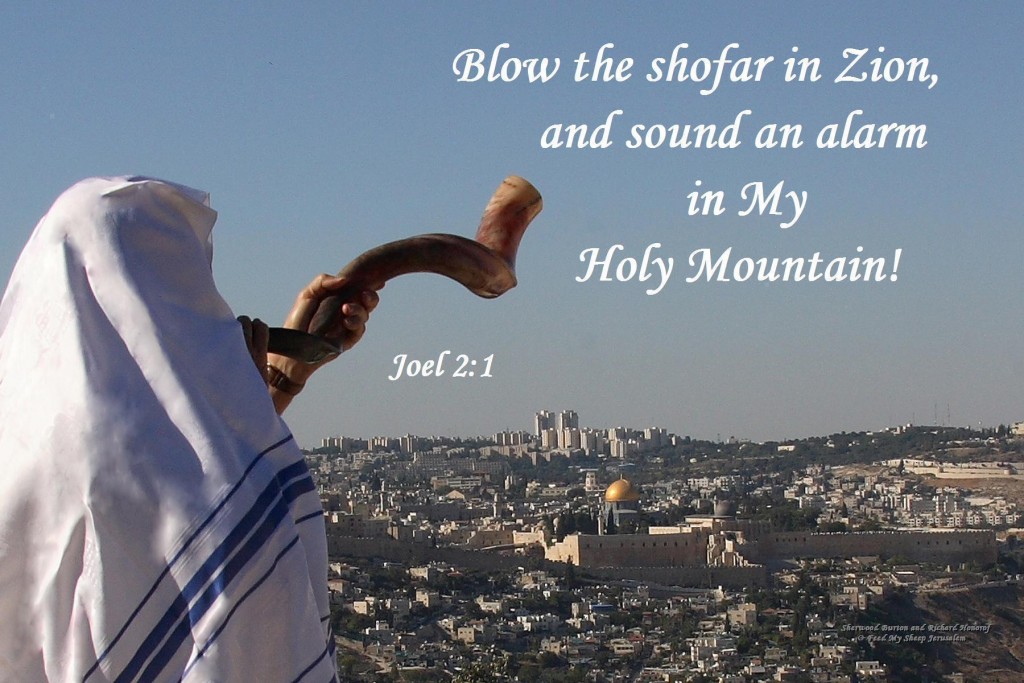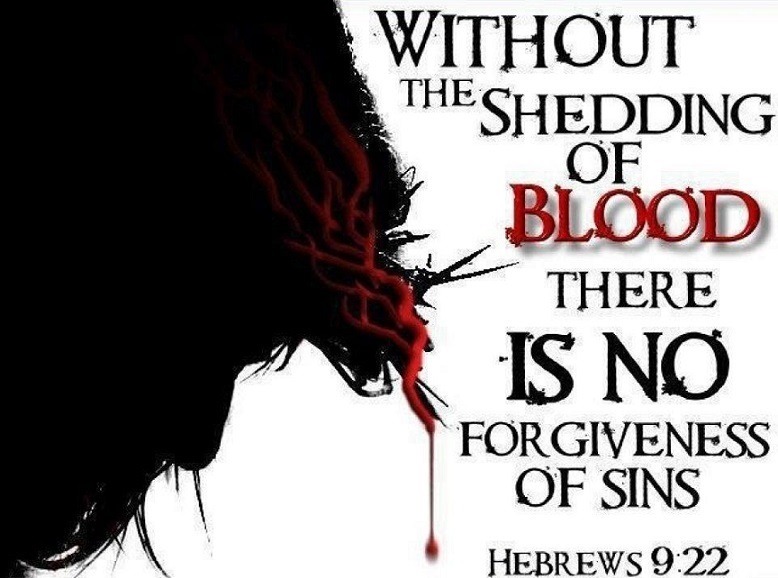By David Brickner
This month, the holiest days of the entire Old Testament calendar will be observed in Jewish communities around the world. They are the Feast of Trumpets and the Day of Atonement, otherwise known as the High Holidays. God commanded Israel to have “a holy convocation” on both of these days (Leviticus 23: 24, 27).
It is primarily the Orthodox Jewish communities that still observe these holy days religiously, though both are national holidays in Israel. But the majority of Jewish people in the world today are secular. Some attend High Holiday services, much as nominal Christians attend church on Christmas and Easter only. Many will not attend at all. And even though these festivals are an important part of the biblical record, most followers of Jesus remain sadly ignorant of their significance as well. Why?
In contrast to other biblical Jewish holidays like Passover or Sukkot, the New Testament makes no mention of Jesus observing the Feast of Trumpets or the Day of Atonement. Perhaps that is one reason these days remain “off the radar” for most Christians. Nevertheless, I don’t doubt that Jesus and His followers joined the rest of the Jewish community in observing the High Holy days. Certainly the themes and theological significance of these two days are woven throughout the New Testament and are ultimately and most meaningfully fulfilled in the person and mission of Christ.
Consider the Feast of Trumpets. Today it is commonly called Rosh Hashanah or the Jewish New Year, but the Bible calls it “Yom T’ruah” or the day of blowing of trumpets. The blast of the trumpet, in this case a ram’s horn, was Israel’s call to repentance. Far from a New Year’s celebration, the trumpet call was announcing a day of reckoning, a day when God entered into judgment with His people. Similarly, the announcement of Jesus’ mission and the content of His own message was a call to repentance. John the Baptist prepared the way for Jesus, crying out, “Repent, for the kingdom of heaven is at hand,” a theme that Jesus himself repeated throughout His earthly ministry (Matthew 3:2; 4:17).
It is interesting to speculate what might have happened had Israel heeded the call to repent at that time. Would my people have received Jesus as the Messiah en masse? In fact, I wonder what would happen among followers of Jesus today if we likewise heeded His call to repentance.
We know that the goodness and grace of God led us to repent and receive His forgiveness in the first place, and that Jesus’ sacrifice was sufficient to atone for our sins, past, present and future. Still, an attitude of repentance for sin is something we should continually want for ourselves, for the Jewish people—indeed for all people. Repentance changes our direction so that we can walk with God, but even followers of Jesus need to be redirected periodically, don’t we? That is what the sound of the trumpet calls us to do.
 The call to repentance on the Feast of Trumpets also anticipates a future but, I believe, soon-coming event. The blast of the ram’s horn (shofar) connects today’s call to repentance to the coming day of judgment. Jesus taught that this would occur upon His return. He spoke of the Son of Man coming in the clouds of heaven, “And He will send His angels with a great sound of a trumpet, and they will gather together His elect from the four winds, from one end of heaven to the other” (Matthew 24:31). Likewise Paul mentions the shofar of God when speaking of the last days, of judgment and the return of Christ (see 1 Corinthians 15:52; 1 Thessalonians 4:16).
The call to repentance on the Feast of Trumpets also anticipates a future but, I believe, soon-coming event. The blast of the ram’s horn (shofar) connects today’s call to repentance to the coming day of judgment. Jesus taught that this would occur upon His return. He spoke of the Son of Man coming in the clouds of heaven, “And He will send His angels with a great sound of a trumpet, and they will gather together His elect from the four winds, from one end of heaven to the other” (Matthew 24:31). Likewise Paul mentions the shofar of God when speaking of the last days, of judgment and the return of Christ (see 1 Corinthians 15:52; 1 Thessalonians 4:16).
It has become popular in some Christian circles to blow the shofar as a symbol of celebration and worship, or at the opening of a gathering or conference. While it is not wrong to do so, it strikes me as a bit of a disconnect. The shofar was sounded in different ways for different purposes in Bible times, but for me its main significance is rooted in the High Holidays. I don’t doubt that when Jesus and His early followers heard the blast of the ram’s horn at the Feast of Trumpets, they understood it was a call to godly repentance. And while the disciples may have taken a while to catch on, Jesus knew that the blast of the shofar was also anticipating His return and all that would occur, including His judgment.
While the Feast of Trumpets signaled God entering into judgment with Israel, on the Day of Atonement He provided redemption and forgiveness of sin. The biblical observance of this holy day centered around sacrificial worship in the Temple and the indispensable role of the high priest, a descendant of Aaron. After the destruction of the Temple by the Romans in A.D. 70 and the subsequent demise of the Aaronic priesthood, Jewish observance of this High Holiday could no longer follow the biblical protocol. Eventually, the observance coalesced around the command, “You shall afflict your souls” (Leviticus 23:27).
This command has been interpreted to mean fasting and so, to this day in the Jewish community, fasting is the primary duty associated with the Day of Atonement. In fact, people who fast on the Day of Atonement do not necessarily attend synagogue service or pray. Some may not even associate the day with the concern about sin or the need for atonement, but will still fast because “it’s the Jewish thing to do.” Talk about a disconnect from the true meaning of the Day of Atonement!
Yet this disconnect is understandable. The Temple and the priesthood were utterly indispensible to this Holy Day; its true significance was rooted and grounded in God’s commands concerning them. When they were destroyed, those who became the custodians of Judaism had to find other ways to direct the people’s spiritual understanding and solidify their spiritual identity. Indeed, it is at this very point that Jesus’ fulfillment of the Day of Atonement becomes one of the most compelling apologetics for the Christian faith.
Jesus knew perfectly well the radical impact His words would make when He proclaimed, “Destroy this temple, and in three days I will raise it up” (John 2:19). Yeshua’s (Jesus’) statement scandalized the Jewish leadership of His day—so much so that it was used as a major accusation against Him during His trial (see Mark 14:57-58). Whatever His hearers did or didn’t understand about His claim, Jesus was actually predicting His death and resurrection, and how it would fulfill the entire purpose and meaning of the Holy Temple.
 But there’s more, because Jesus not only fulfilled the role of the Temple but also the priesthood itself. Though he was not a descendant of Aaron, the author of Hebrews identifies Jesus as having a “superior priesthood,” that of Melchizedek (see chapters 5-7). Therefore, He was able once and for all to make atonement for us when He died and rose again. The day our eternal High Priest Jesus entered “behind the veil” (Hebrews 6:19) was the ultimate Day of Atonement, the day when He secured an everlasting covering and forgiveness of sin for all who trust in Him. Yes, the Day of Atonement, the Temple sacrifices and the priesthood are all fulfilled in the person of Jesus Christ.
But there’s more, because Jesus not only fulfilled the role of the Temple but also the priesthood itself. Though he was not a descendant of Aaron, the author of Hebrews identifies Jesus as having a “superior priesthood,” that of Melchizedek (see chapters 5-7). Therefore, He was able once and for all to make atonement for us when He died and rose again. The day our eternal High Priest Jesus entered “behind the veil” (Hebrews 6:19) was the ultimate Day of Atonement, the day when He secured an everlasting covering and forgiveness of sin for all who trust in Him. Yes, the Day of Atonement, the Temple sacrifices and the priesthood are all fulfilled in the person of Jesus Christ.
Certainly that is cause to celebrate this and every month. My prayer is that my brothers and sisters in Christ will come into an ever-greater appreciation of the riches of our Jewish roots as seen through Christ in the High Holidays. Even more, and especially now, I am praying—and invite you to pray with me—that my Jewish brothers and sisters may come to know Christ in the High Holidays and receive eternal salvation that can only come through Him.








